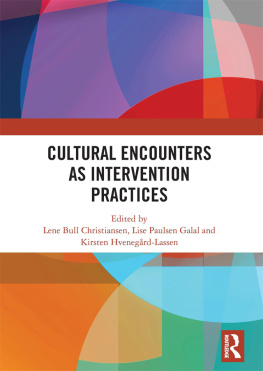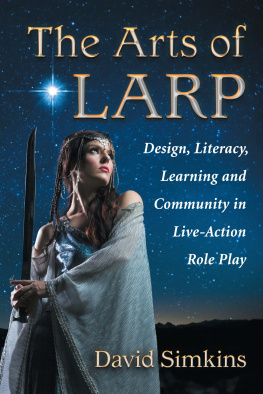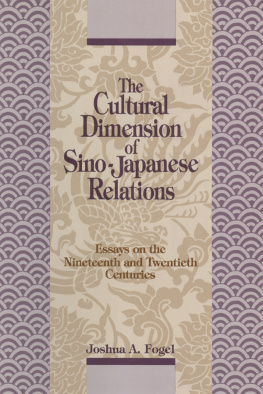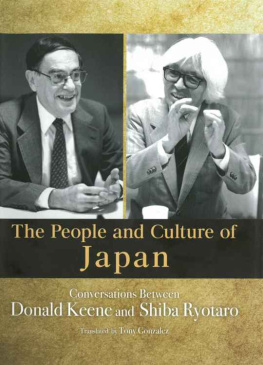
Japanese Encounters
This book explores the multiplicity of special times and spaces in Japan within which people get together to decide, celebrate or play, in gatherings such as organizational meetings, community festivities, preschool games or drinking bouts. It analyzes these gatherings in relation to the theoretical model of sociocultural frames, examining how such gatherings are put together, their unfolding stages, the interactive encounters, the relations between participants, and the wider social and cultural contexts. It considers the cognitive, emotional and behavioral dimensions, the scope for manipulation and the effects, intentional and unintentional, on participants, and the connections to the ways in which society and culture change. Overall, besides describing specific rites and ceremonies in Japan, the book provides great insights into the process whereby the interactions, feelings and actions of individuals and groups shape popular culture.
Eyal Ben-Ari is Chairman of the Center on Peace, Security and Society in Memory of Dan Shomron at Kinneret Academic College, Israel.
Routledge Culture, Society, Business in East Asia Series
Editorial Board:
Heung Wah Wong (Executive Editor), The University of Hong Kong, Hong Kong, China
Chris Hutton, The University of Hong Kong, Hong Kong, China
Wayne Cristaudo, The University of Hong Kong, Hong Kong, China
Harumi Befu (Emeritus Professor), Stanford University, USA
Shao-dang Yan, Peking University, China
Andrew Stewart MacNaughton, Reitaku University, Japan
William Kelly, Independent Researcher
Keiji Maegawa, Tsukuba University, Japan
Kiyomitsu Yui, Kobe University, Japan
How and what are we to examine if we wish to understand the commonalities across East Asia without falling into the powerful fictions or homogeneities that dress its many constituencies? By the same measure, can East Asian homogeneities make sense in any way outside the biases of East-West personation?
For anthropologists familiar with the societies of East Asia, there is a rich diversity of work that can potentially be applied to address these questions within a comparative tradition grounded in the region as opposed the singularizing outward encounter. This requires us to broaden our scope of investigation to include all aspects of intra-regional life, trade, ideology, culture, and governance, while at the same time dedicating ourselves to a complete and holistic understanding of the exchange of identities that describe each community under investigation. An original and wide ranging analysis will be the result, one that draws on the methods and theory of anthropology as it deepens our understanding of the interconnections, dependencies, and discordances within and among East Asia.
The book series includes three broad strands within and between which to critically examine the various insides and outsides of the region. The first is about the globalization of Japanese popular culture in East Asia, especially in greater China. The second strand presents comparative studies of major social institutions in Japan and China, such as family, community and other major concepts in Japanese and Chinese societies. The final strand puts forward cross-cultural studies of business in East Asia.
First published 2018
by Routledge
2 Park Square, Milton Park, Abingdon, Oxon OX14 4RN
and by Routledge
711 Third Avenue, New York, NY 10017
Routledge is an imprint of the Taylor & Francis Group, an informa business
2018 Eyal Ben-Ari
The right of Eyal Ben-Ari to be identified as author of this work has been asserted by him in accordance with sections 77 and 78 of the Copyright, Designs and Patents Act 1988.
All rights reserved. No part of this book may be reprinted or reproduced or utilised in any form or by any electronic, mechanical, or other means, now known or hereafter invented, including photocopying and recording, or in any information storage or retrieval system, without permission in writing from the publishers.
Trademark notice: Product or corporate names may be trademarks or registered trademarks, and are used only for identification and explanation without intent to infringe.
British Library Cataloguing in Publication Data
A catalogue record for this book is available from the British Library
Library of Congress Cataloging in Publication Data
A catalog record for this book has been requested
ISBN: 978-1-138-73717-4 (hbk)
ISBN: 978-1-315-16647-6 (ebk)
This volume is dedicated with warmth to Don Handelman and Ehud Harari
Mentors, supporters, friends
This volume comprises a collection of essays I have penned about Japan and things Japanese over the past decades. Since the end of the 1970s I have carried out research about Japanese culture and society in a variety of sites and arenas. Among others, I have studied white-collar suburbs, preschools and early childhood education, the Japanese community in Singapore, the countrys Self-Defense Forces, Yasukuni and nationalist rites, the economic and political dimensions of popular culture and, indeed, Japanese studies itself.
Why have I chosen to gather these essays together at this point in time? I have often read the fables (in the sense of constructed stories) of people who say their friends or editors suggested to them to publish a collection of their essays. My case is different (or at least I am candid enough to admit it). I actually chose to ask friends and acquaintances about the possibility of such a collected volume. The primary reason prompting me has to do with a conversation I had with a former colleague at the Hebrew University. We were having coffee, and the question of why we had published so much came up. Thinking about it, my answer was that it was primarily because I found it fun to research and write, and that publication was a nice spin-off (her answer was that she published in order to become famous).
Of course I was interested in pursuing and advancing my career but I was also very lucky to be paid to pursue my intellectual hobby (and happily I still am) that of anthropology. Indeed, putting these essays together and writing a new introduction provided much intellectual and aesthetic enjoyment as well as an opportunity to reflect on my thinking over the past three or so decades. As such, the volume reveals the personal evolution of my ideas about a social scientific understanding of micro, mezzo and macro gatherings of individuals and groups in Japan and shows how my research on and in Japan has interacted with key developments in the social sciences and Japanese studies. Thus the criterion for judging the value of this collection lies not in what I have discovered about myself, but in what it may teach other scholars about the study of Japan.
Finally, writing this volume has led me to realize more than in the past my personal and intellectual debt gladly repaid in small measure here to a variety of friends and colleagues (some co-authors or co-editors). Thus my debt and deep thanks go to Esther Goody who was my PhD supervisor, Ehud Harari and Erik Cohen who supervised my masters thesis (on Japanese castle towns), and especially Don Handelman with whom I have had a close personal and intellectual relationship and who has been the most significant influence on this volume through his work on rituals and public events. Later work, not only about Japan, has involved me in fascinating discussions (and sometimes arguments) with a host of other people who include many former colleagues at the Hebrew University most notably Nurit Stadler, Edna Lomsky-Feder, Limor Samimian-Darash, Yoram Bilu, Boas Shamir and Nissim Otmazgin and scholars from around the world including Sabine Frhstck, Smita Tewari Jassal, Zeev Drory, Jan van Bremen, Joy Hendry, Sepp Linhart, Mayumi Sekizawa, the late Robert J. Smith, and Timothy Tsu. Finally, I would like to thank my many students in the past and in the present from whom I have learned so much.







